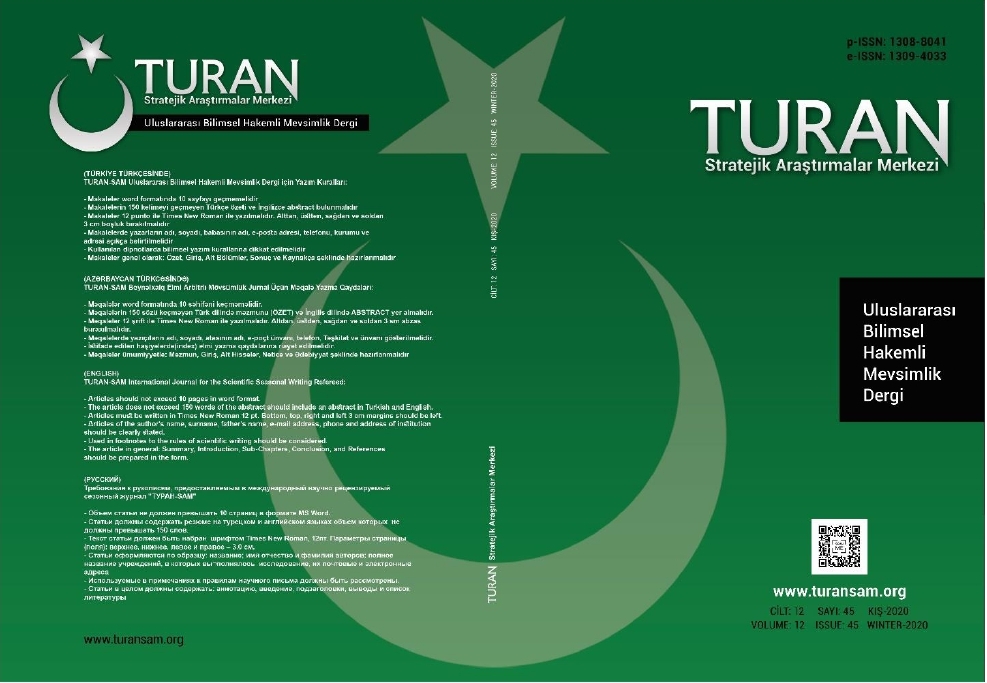IDENTITY AND TURKISH DIPLOMACY TOWARDS THE ARAB-ISRAELI CONFLICT DURING ARAB SPRING
IDENTITY AND TURKISH DIPLOMACY TOWARDS THE ARAB-ISRAELI CONFLICT DURING ARAB SPRING
Author(s): Eman SultanSubject(s): Diplomatic history, Military history, Islam studies, Present Times (2010 - today), Peace and Conflict Studies
Published by: Sage Yayınları
Keywords: Identity; Discourse; Turkish Diplomacy; Arab- Israeli Conflict; Muslim Brotherhood; Rabia;
Summary/Abstract: This paper assumes that during the Arab uprisings the Turkish position towards the Arab Israeli Conflict including the two Israeli wars on Gaza in 2012 and 2014, was affected by changing of the regimes in other Arab countries like Egypt. During the Israeli war on Gaza in 2012, Muslim Brotherhood was governing Egypt, the thing that made Egypt to be a strategic ally for Turkey. At that time, JDP leaders used the same discourse of Muslim Brotherhood in warning of Israel, and Turkey was able to play an active role in the ceasefire in cooperation with Egypt and Qatar. While in Gaza war 2014, the situation changed as Egypt became under military rule, and it is no longer ally for JDP government, for that Turkey did not play an active role to end the Israeli attack on Gaza. That will be analyzed using constructivist theory of Michael Barnett about the role of identity in foreign policy and choosing of an attractive partner that share a common identity, common history, and a common destiny. Besides, the post-structuralist discourse theories which assume that “nothing outside the text” and claim that “identity is constituted through repeated acts”, will be used to show how discourse of ‘Rabia’ which its origins back to Muslim Brotherhood in Egypt, was institutionalized in Turkey through repeated acts and became a sign of JDP.
Journal: TURAN-SAM
- Issue Year: 12/2020
- Issue No: 45
- Page Range: 265-275
- Page Count: 11
- Language: English

